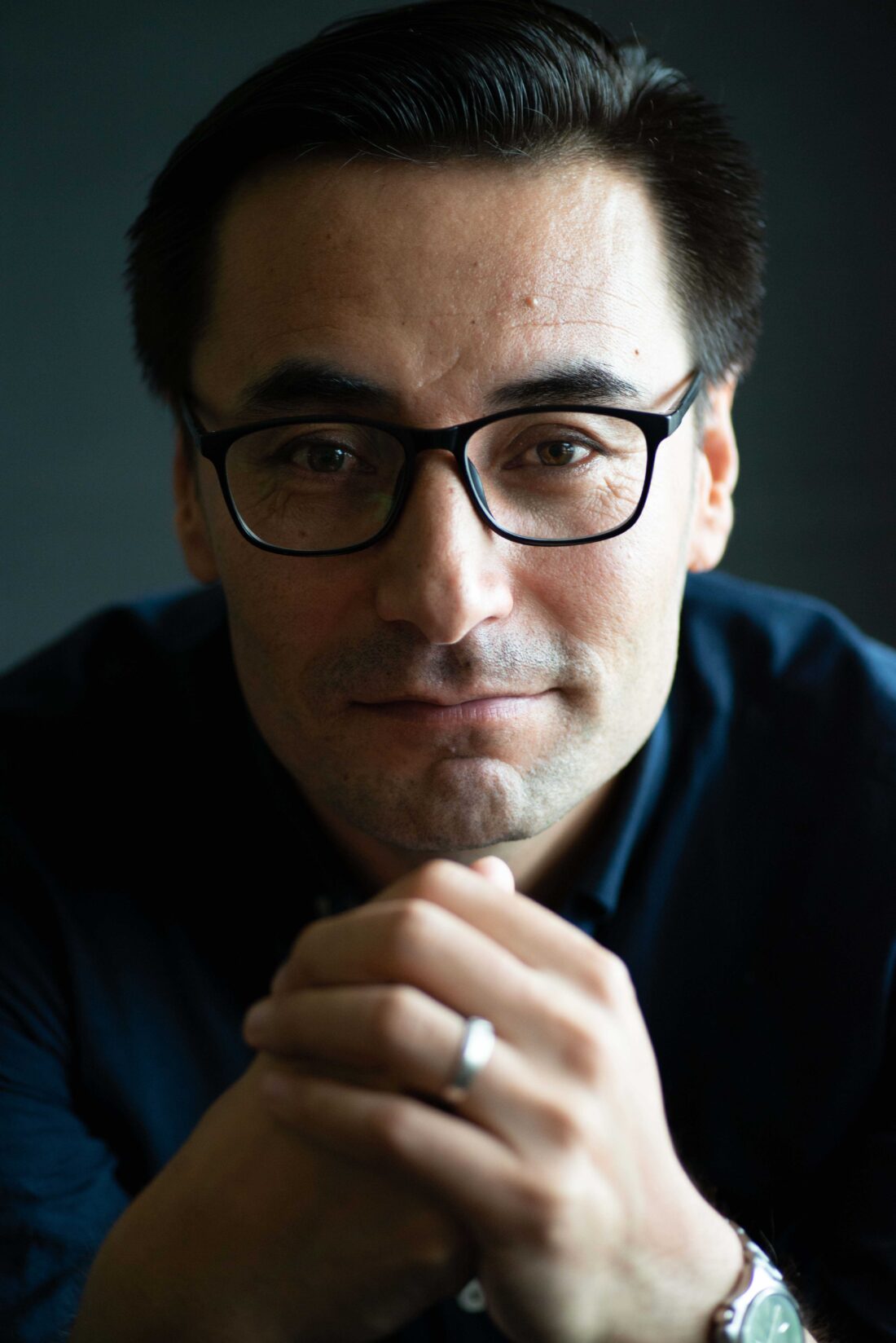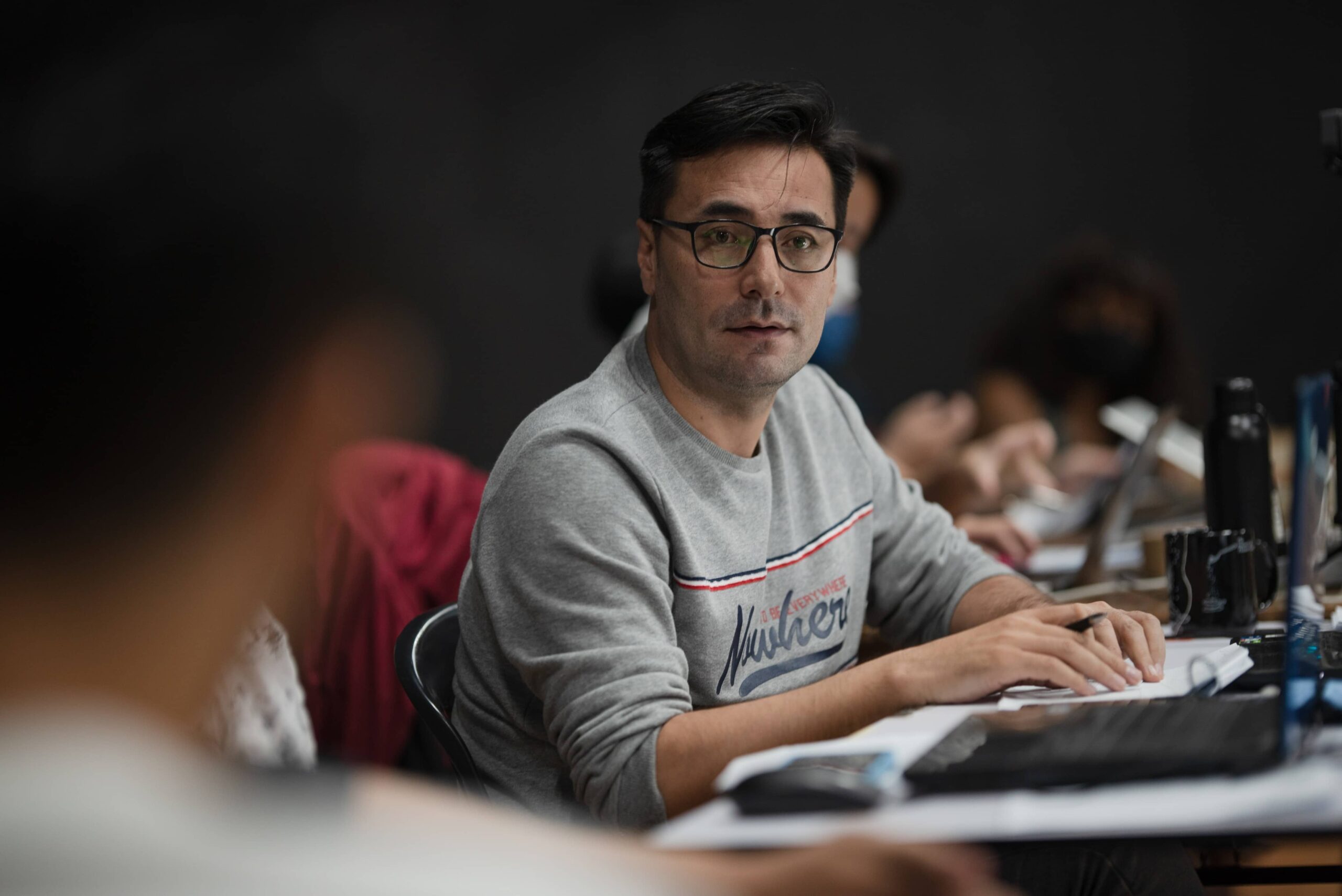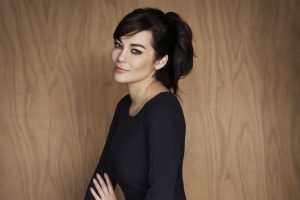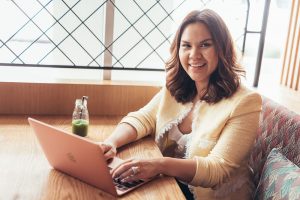Having to start over in Malaysia was not easy; it was difficult for Saleh to get a job due to his refugee status and the mental anguish that came with that was debilitating. “Our first title is human,” he states to me in a video call from his third country where his family has since resettled in the US. Third country resettlement is a UNHCR refugee solution where resettled refugees have the right to reside in a country permanently.
After the initial stages of recalibrating having left Afghanistan, he grappled with depression and isolation having had to start all over again. Saleh decided to reframe his own narrative when it came to telling his story. “Why would I need to wait for others to come change my life? They don’t have my voice,” he says. Having studied theatre in Kabul University, he knew he had more to offer. And he knew how art could be a powerful therapy and empowerment tool.

Starting Parastoo Theater was challenging initially – no one joined. “There were many ideas and projects but there was no belief in refugee talent and knowledge,” he details. The challenges came from both sides: refugees didn’t believe in the power of art and the home country (Malaysia) did not believe in refugee talent.
One of Parastoo’s greatest achievements is the bridging of the divide between host communities (and non-refugees) and the refugees – through friendship and professional relationships. “Unity between communities through theatre is important to me,” he states. For example, he collaborated with local theatre maker and Artistic Director of Instant Cafe Theatre Jo Kukathas – they co-wrote ‘And Then Came Spring‘, which was a sequel to ‘Screaming in Silence’, one of the first shows Parastoo Theater put out.
THEATER OF THE OPPRESSED
The methodology in Theater of the Oppressed (TO) is what drives Parastoo Theater and their storytelling. First created by Brazilian theatre practitioner and political activist Augusto Boal, it’s a theatrical form that stimulates critical observation and representation of reality, envisioning the production of concrete actions.

Adamant that it is not used as entertainment nor for propaganda, the methodology encourages dialogue and nurtures active participation from the audience. “As human beings, we often get trapped or frozen in patterns of behaviour that impede real communication,” details Parastoo’s TO method on their website.
It’s worthwhile to remember that not all refugees are immediate actors, but when they connect to the story they’re trying to tell, it is more than simply a performance. The methodology begins with playing games and learning to arrange your mind, energy and body towards one goal. The goal is to understand one’s potential and power.
They also host mental health workshops which serve as a compendium to the TO training, where they talk about problems and map them out on problem trees. This is where they determine the root of the problem, and how that takes hold and grows into other problems. It’s a reframing of how refugees can approach their lives while grappling with a deep sense of hopelessness.
ON PARASTOO THEATER’S LEGACY
As Saleh and his family have since resettled in Virginia, US since August 2023, he has had to pass the mantle to Farzana Yakta, his sister-in-law. She had been in Malaysia longer than he had.
“She was so shy and struggled with a lack of self-confidence,” he says of Farzana back in 2017 when he had just started Parastoo. “But after 3 months, we discovered she was a powerful actress with so much talent – she was interested in learning more and using the power of art for change. We were raising voices with art.”
Such is the life of a refugee in Malaysia is the lack of permanence – so with that, Saleh has devised a Parastoo leadership programme. This is underway as he had to leave Malaysia abruptly and is remotely walking Farzana through taking over while in the US.
“We need to find about 5 to 6 people who are new to Malaysia and interested in working with Parastoo as a new leader because everything is ready – the grant, the budget, the activities, the programme, everything,” he says. Each person will do a different job, but make up the leadership team of Parastoo – one to focus on financials, another on directing, another on coordination, and other roles.

His own experience of leaving so quickly taught him to think about Parastoo’s legacy in Malaysia. “We don’t want to lose Parastoo in Malaysia because the refugee community needs Parastoo. We need a good network so that when one leader leaves Malaysia, they can train another leader. This is so we can continue running Parastoo in Malaysia long-term. Many refugees have dreams to become a leader but they don’t have the opportunity – so we try to open this window for them,” he adds.
For 2024, Parastoo has many projects lined up, and Saleh will be guiding Farzana through this. There are non-theatre activities such as web design, proposal writing and graphic design classes for refugees. Parastoo also has plans for a musical and documentary in 2024. “I will write the script from the US and Farzana will lead the process and be the director,” he says.
Saleh’s previous written works, directed and produced in Malaysia include ‘The Roof that Collapsed‘, ‘End of Each Month‘, ‘I Will Smile Again‘, ‘Overcoming Hardship‘, and ‘The Bitter Taste of History‘.
Parastoo Theater has its own community space at Quill City Mall. Follow them on IG for updates about their upcoming shows and programmes. Read more about our January 2024 INSPIRE piece about Farzana Yakta here.







